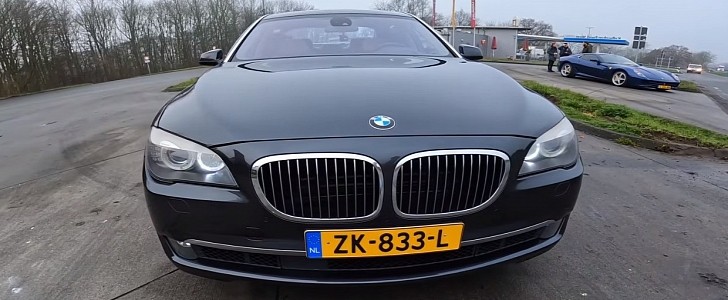The flagship of a premium manufacturer will continue to be a flagship even after it gets replaced by the newer model. All it needs is proper maintenance and a bit of care, and it gets to be just as impressive as it used to be in its heyday.
We already know that BMW is set to stop building its V12, and that means that the existing models that got it should become more valuable. While it is sad that BMW will no longer offer the exotic powerplant, we can only be thankful that it existed in the first place.
You do not have to be a hardcore BMW fan to know that the German marque first introduced the V12 on its 7 Series. Back in the day, the 1987 750i/750iL received the company's M70B50 unit.
Later, BMW introduced its V12 on the first-ever 8 Series. A highly modified variant of that engine was then developed for the McLaren F1, and the rest is history.
Since BMW's first V12, the German marque launched four generations of this type of motor, and the one that will end production is the N74, which dates back from 2008. It was the first twin-turbo V12 in the company's history and also the replacement of the N73, which was the last naturally aspirated V12 in BMW history.
In the video featured below, we get to see a 2011 BMW 760Li in action, which comes with the N74B60 motor. That unit was produced up until 2015, and it comes with 544 horsepower and 750 Nm of torque (553 lb.-ft.). Peak output is reached at just 5,250 rpm, while the grunt of the six-liter unit is available from 1,500 to 5,000 rpm. That means that any vehicle that gets it will be brisk both off the line and during in-gear acceleration.
Fortunately for us, and especially for those who live in Germany, there are sections of the famous Autobahn where ordinary people can drive their cars as fast as they feel they can control them. While it appears that it is a faux pas to drive a Chiron at over 400 kph on the Autobahn, sticking to the "gentleman's agreement" of 250 kph (155 mph) should be fine in said sectors.
As you can observe, this is how the F02 generation of the 7 Series can accelerate on the highway in V12 form. The acceleration is effortless, and the soundproofing is more than adequate. From personal experience, I can attest that this generation of the 7 Series has impressive soundproofing but is still far from Rolls-Royce standards.
You do not have to be a hardcore BMW fan to know that the German marque first introduced the V12 on its 7 Series. Back in the day, the 1987 750i/750iL received the company's M70B50 unit.
Later, BMW introduced its V12 on the first-ever 8 Series. A highly modified variant of that engine was then developed for the McLaren F1, and the rest is history.
Since BMW's first V12, the German marque launched four generations of this type of motor, and the one that will end production is the N74, which dates back from 2008. It was the first twin-turbo V12 in the company's history and also the replacement of the N73, which was the last naturally aspirated V12 in BMW history.
In the video featured below, we get to see a 2011 BMW 760Li in action, which comes with the N74B60 motor. That unit was produced up until 2015, and it comes with 544 horsepower and 750 Nm of torque (553 lb.-ft.). Peak output is reached at just 5,250 rpm, while the grunt of the six-liter unit is available from 1,500 to 5,000 rpm. That means that any vehicle that gets it will be brisk both off the line and during in-gear acceleration.
Fortunately for us, and especially for those who live in Germany, there are sections of the famous Autobahn where ordinary people can drive their cars as fast as they feel they can control them. While it appears that it is a faux pas to drive a Chiron at over 400 kph on the Autobahn, sticking to the "gentleman's agreement" of 250 kph (155 mph) should be fine in said sectors.
As you can observe, this is how the F02 generation of the 7 Series can accelerate on the highway in V12 form. The acceleration is effortless, and the soundproofing is more than adequate. From personal experience, I can attest that this generation of the 7 Series has impressive soundproofing but is still far from Rolls-Royce standards.








